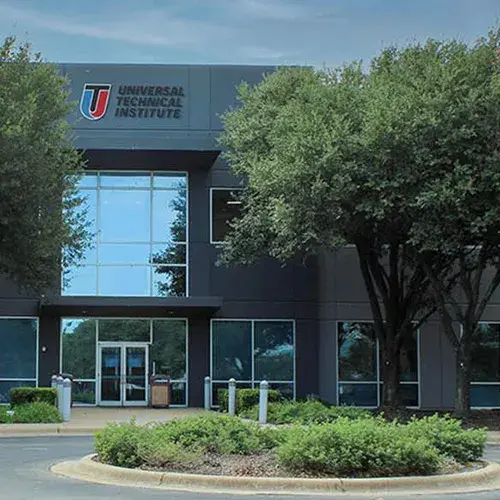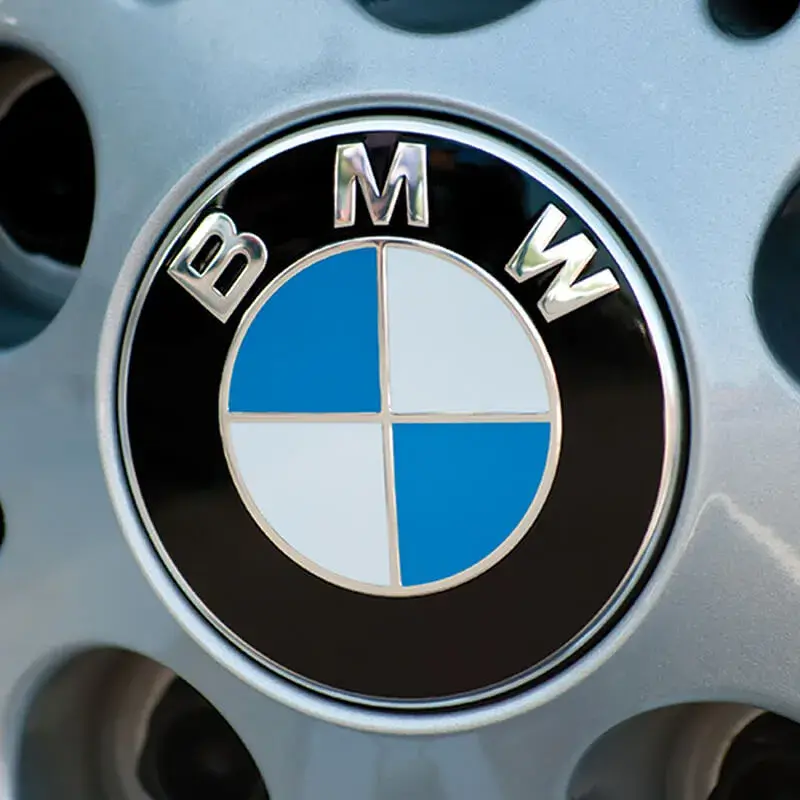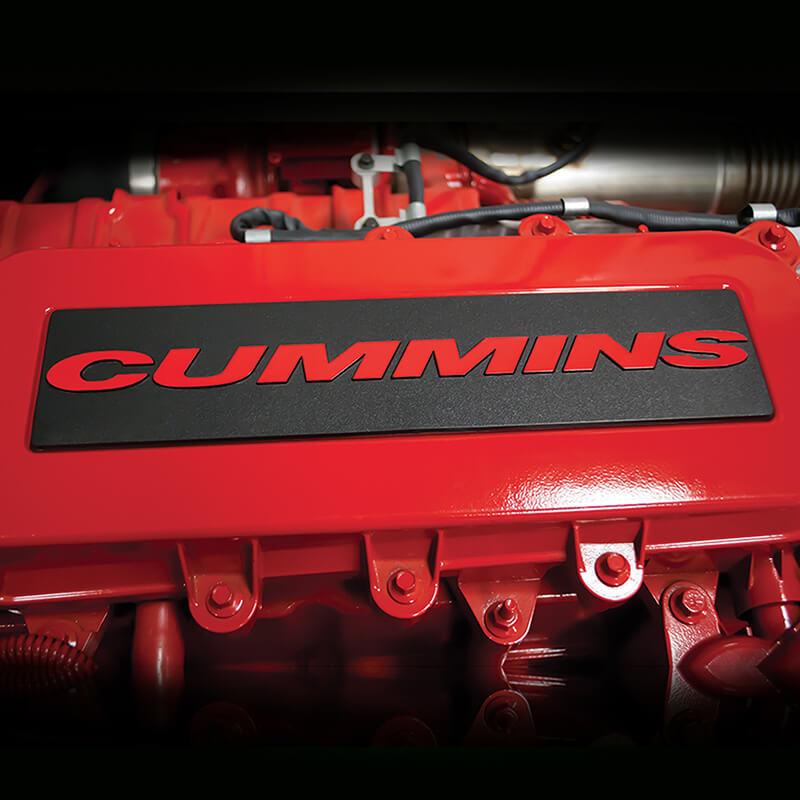Universal Technical Institute (UTI) offers 11 training programs across three separate trade schools in Texas. Hands-on training in state-of-the-industry labs, supportive instructors and career services are all part of the deal.1,18 Learn more below!
3 CAMPUSES / 1 STATE
WHERE YOU'LL LEARN
UTI offers three separate campus locations in Texas with a wide range of programs, such as:
- Automotive Technology
- Diesel & Industrial Technology
- Automotive & Diesel Technology
- Collision Repair
- Welding
- HVACR
- Robotics & Automation
- Wind Turbine
- Industrial Maintenance
- Advanced Non-Destructive Testing
- Airframe & Powerplant Technician
Automotive and Diesel students who attend UTI’s Texas trade school campuses also can take advantage of Manufacturer-Specific Advanced Training programs (MSATs) with Ford, BMW, Cummins46 and Peterbilt.15
Our Austin trade school proudly serves Austin and the surrounding communities: Cedar Park, Georgetown, Kyle, Leander, New Braunfels, Pflugerville, San Marcos and more!
Our UTI Dallas/Fort Worth trade school proudly serves Dallas/Fort Worth and the surrounding communities: Arlington, Carrollton, Denton, Frisco, Garland, Grand Prairie, Mesquite, Plano and more!
Our UTI Houston trade school proudly serves Houston and the surrounding communities: Baytown, Conroe, Galveston, League City, Missouri City, Pasadena, Pearland, Spring, Sugar Land, The Woodlands and more!
AUTOMOTIVE MECHANIC SCHOOL IN TEXAS
UTI’s Automotive Technology program is offered at our Austin, Houston, and Dallas/Fort Worth trade schools. In this program, you’ll learn how to diagnose, maintain and repair domestic and foreign vehicles. Your courses will cover key concepts like vehicle electronic technology, suspension systems, diagnostics and drivability, and much more. Along the way, you’ll learn from passionate, experienced instructors who are committed to your success.
Our UTI Austin auto mechanic school proudly serves Austin and the surrounding communities: Cedar Park, Georgetown, Kyle, Leander, New Braunfels, Pflugerville, Round Rock, San Marcos and more!
Our UTI Dallas/Fort Worth auto mechanic school proudly serves Irving and the surrounding communities: Arlington, Denton, Frisco, Garland, McKinney, Plano and more!
Our UTI Houston auto mechanic school proudly serves Houston and the surrounding communities: Conroe, Baytown, Galveston, League City, Missouri City, Pasadena, Pearland, Spring, Sugar Land, The Woodlands and more!
DIESEL MECHANIC SCHOOL IN TEXAS
UTI’s Diesel training program is offered at the Austin, Dallas/Fort Worth and Houston campuses. In less than one year,7 you’ll be taught the ins and outs of diesel fuel systems, diesel engines, preventive maintenance and much more. Upon graduation, you’ll be well prepared to test for ASE certification, and you can even substitute your training for one of the two years of work experience required to become ASE certified.
Our Austin diesel mechanic school proudly serves Austin and the surrounding communities: Cedar Park, Georgetown, Kyle, Leander, New Braunfels, Pflugerville, Round Rock, San Marcos and more!
Our UTI Dallas/Fort Worth diesel mechanic school proudly serves Dallas/Fort Worth and the surrounding communities: Arlington, Denton, Frisco, Garland, McKinney, Plano and more!
Our UTI Houston diesel mechanic school proudly serves Houston and the surrounding communities: Baytown, Conroe, Galveston, League City, Missouri City, Pasadena, Pearland, Spring, Sugar Land, The Woodlands and more!
AUTO BODY REPAIR SCHOOL IN TEXAS
Interested in a career in auto body repair? Created in conjunction with I-CAR, a leading brand in the industry, UTI Houston’s Collision Repair & Refinish Technology (CRRT) program can teach you how to reshape and restore a wide variety of vehicles.
WELDING SCHOOL IN TEXAS
If you’re looking for welding trade schools in Texas, UTI’s Welding Technology program is available at the Austin, Dallas/Fort Worth and Houston campuses. In just nine months, graduates will get the hands-on training needed to prepare for a career in a variety of industries, from manufacturing to construction to aerospace. Your coursework will cover four main welding processes to help prepare you to become a combination welder.
Our Austin welding school proudly serves Austin and the surrounding communities: Cedar Park, Georgetown, Kyle, Leander, New Braunfels, Pflugerville, Round Rock, San Marcos and more!
Our UTI Dallas/Fort Worth welding school proudly serves Dallas/Fort Worth and the surrounding communities: Arlington, Denton, Frisco, Garland, Grand Prairie, McKinney, Mesquite, Plano and more!
Our UTI Houston welding school proudly serves Houston and the surrounding communities: Baytown, Conroe, Galveston, League City, Missouri City, Pasadena, Pearland, Spring, Sugar Land, The Woodlands and more!
HVACR SCHOOL IN TEXAS
UTI’s heating, ventilation, air conditioning and refrigeration (HVACR) trade school campuses in Austin and Houston are designed to get you ready to pursue a career in an essential industry. Courses cover everything from vent system selection and installation to air handling and hydronics, duct fabrication and more.
ROBOTICS & AUTOMATION TECHNICIAN SCHOOL IN TEXAS
Get hands-on STEM training needed for an innovative manufacturing career in less than a year. Our Robotics & Automation Technician program in Houston includes courses like Programmable Logic Controllers, Industrial Robotics and Computer Aided Design to help students build skills needed across industries like manufacturing and distribution.
Our UTI Houston robotics and automation school proudly serves Houston and the surrounding communities: Baytown, Conroe, Galveston, League City, Missouri City, Pasadena, Pearland, Spring, Sugar Land, The Woodlands and more!
WIND TURBINE TECHNICIAN SCHOOL IN TEXAS
Enroll in the Wind Turbine Technician program at UTI Houston to learn what you need for a career in renewable energy. Courses cover renewable energy sources, wind technology components, climb and rescue, and more. You’ll be taught in hands-on in labs that mirror the field so you can confidently pursue entry-level roles after graduation.
Our UTI Houston wind turbine school proudly serves Houston and the surrounding communities: Baytown, Conroe, Galveston, League City, Missouri City, Pasadena, Pearland, Spring, Sugar Land, The Woodlands and more!
INDUSTRIAL MAINTENANCE TECHNICIAN SCHOOL IN TEXAS
The seven-month Industrial Maintenance Technician program in Houston equips graduates with the skills needed to maintain, repair and diagnose machinery in the energy sector. Students graduate prepared to pursue entry-level positions in industries like gas, coal, solar and nuclear.
ADVANCED NON-DESTRUCTIVE TESTING TECHNICIAN SCHOOL IN TEXAS
The Advanced Non-Destructive Testing (NDT) Technician program in Houston teaches students the ins and outs of quality control and inspection. Over the course of nine months, they’ll be taught to test the structural integrity of manufactured parts used in important structures like bridges, dams, pipelines and more. Industry-aligned courses in theory and application prepare them to pursue roles in this important field with confidence.
AIRFRAME & POWERPLANT TECHNICIAN SCHOOL IN TEXAS
The 18-month Airframe & Powerplant Technician program in Houston teaches students about aircraft troubleshooting, hydraulics, powerplant systems, and more. Through hands-on application, students can gain the confidence to pursue entry-level roles in the field after graduation.79 Students and graduates are also eligible to apply and test for FAA Airframe & Powerplant certification!128
TEXAS MANUFACTURER-SPECIFIC TRAINING PROGRAMS
REASONS STUDENTS LOVE OUR TRADE SCHOOLS IN TEXAS
Texas is a great place to learn and play! See where students enjoy spending their time away from campus.
Texas Motor Speedway: This is the motorsports facility in Texas. You’ll have access to everything from IndyCar and NASCAR to Xfinity and the CRAFTSMAN Truck series.
AT&T Stadium: Home to the NFL’s Dallas Cowboys, this stadium also offers entertainment like MonsterJam, Supercross and plenty of concerts.
Six Flags Over Texas: Are you a thrill-seeker? This amusement park has roller coasters on top of roller coasters to keep your adrenaline going.
Circuit of the Americas: This is considered to be the ultimate destination for racing and entertainment in Austin. Circuit of the Americas is home to Formula 1, MotoGP, INDYCAR racing and so much more.
Minute Maid Park: Home to MLB’s Houston Astros.



















